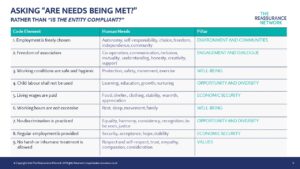Is This the Way Forward for Supply Chain Engagement?
Industry needs an urgent and radical re-think of human rights due diligence in supply chains. Through discussions and pilot work with industry professionals and businesses, The Reassurance Network (TRN) is gaining extensive support for a radically different approach to supplier engagement, grounded in over 20 years of in-depth, high-quality supply chain assessment and remediation.
Five years ago, we were asked by an international NGO to evaluate a site in the Middle East that had been audited many times over the years by various companies. The auditors had all utilised standard commercial auditing methodologies which had painted a consistent picture of compliance. However, during two days of TRN’s site assessment, using soft skills and more flexible methods of enquiry, we unearthed evidence of severe labour violations, paving the way for an extensive remediation programme which benefitted the most vulnerable workers at the site.
The same situation has happened consistently at other “compliant” sites where our team uncovered egregious violations of labour rights in the workplace through utilising our alternative assessment methods and soft skills.
Professionals with experience running audit programmes will not be surprised by large scale data from commercial audits which indicate that up to 25% of audits show zero non compliances, and that fewer than 1% identified serious exploitation. These figures contrast starkly with data from over 20 years of TRN’s own audits and assessments which show many emerging and persistent issues in supply chains across the globe.
As auditors, we challenged ourselves to explore how we could strengthen site assessments to ensure that current and future workers could be protected from exploitation. We were uncomfortable that commercial auditing’s inability to identify serious issues could be standing in the way of discussions about protection and remediation of human rights. It felt misleading to talk about compliance in a binary way when a lot of the issues we were observing in supply chains were complex and inter-linked.
This led us to develop an alternative social assessment model for the future: TRN’s FORUM methodology.
We broke down and challenged every aspect of conventional auditing and assessment. Our conclusions were radical:
- Commercial auditing is often adversarial and rigid, and can raise barriers to remediation and improvement. A completely different approach is needed based on collaboration, trust, understanding and improvement. Factory and site managers and owners must support the process. We need to understand their concerns and needs as well as those of workers. They are a key stakeholder.
- The objective of an assessment should be to protect people from exploitation, not to identify non-compliance. Assessments should identify both current and future exploitation risks and lay a clear path for prevention and remediation. Without this path to improvement, due diligence has little value to the victims of exploitation.
- Instead of conventional top-down audit models, an alternative approach would focus on peoples’ needs and seek to understand the true reasons why the needs of all stakeholders are sometimes not being met. Win-win outcomes are needed to develop sustained evolution that will benefit all parties.
- We found that codes and standards are increasingly ineffective tenets for self-motivated improvement as they rely on a brand being able to exert commercial pressure and dominance. In reality, brands have diminishing commercial power.
- Brands need the information and incentives to become architects and facilitators for improving working conditions, rather than policing their supply chains against codes and standards.
Over the past decade, we have observed significant shifts in workforce demographics, the increased role of suppliers and agents and the decline in the commercial power of brands. While brands are losing commercial dominance over their supply chains, sites are simultaneously struggling to recruit and retain a workforce. Future models for assessment, remediation and improvement will need to work without the historical drivers of downward pressure from brands, suppliers and workplace managers. This is a critical and very fundamental consideration which led TRN to ask the question;
“Is it possible to develop effective due diligence that delivers meaningful and sustained improvements for workers, while building more reliable and resilient supply chains, by using social improvement as a financial incentive?”
Thus, our new dialogue-based approach was developed. FORUM incorporates the following characteristics:
- Soft skills of our assessors to understand situations and develop solutions.
- Structured needs-based assessments that consider the needs of all stakeholders: workers, management, intermediary suppliers and brands.
- Defined objectives with positive terminology that can be reached collaboratively.
- Engagement with and respect for supply chain managers and owners, using TRN’s influencing skills to gain their sustained buy-in and generate benefits for the business.
- Taking the time needed to build trust amongst stakeholders and seeking to understand different points of view in a non-judgemental environment.
- Co-creating measurable improvement indicators that can be tracked and reported.

Before rolling out this new approach, we gave further training to our team in the soft skills they would need. Assessments typically take five days, combining extensive needs-based dialogue with root cause analysis and a degree of upskilling and training. We generate a very detailed understanding of each site before working with management to create improvement programmes, goals, indicators and resource plans.

Two years later, we have successfully applied this approach at 42 sites in 13 countries. The results have exceeded all expectations:
- In most cases, the initiative was received enthusiastically by supply chain managers and owners who saw it as a refreshing change to auditing. Many management teams were happy to disclose the true picture of working practices and ask for help to create sustainable solutions. We were often able to unblock long standing non-compliances and issues.
- In all cases, we were able to actually improve the lives of workers. Initiatives to increase worker retention through dialogue and engagement were especially successful. In some cases, we were able to facilitate an 80% improvement within six months. This was often the first time that these sites had staged discussions around meeting workers’ needs. We also observed a positive culture change and improved relationships as participants became comfortable with collaborative dialogue.
- In many cases, root cause analysis of issues led back to buying practices and the supplier’s interface with its customers. These findings were fed back to brands to help them understand how to make changes within their own businesses.
- The facilitated and structured discussions around the needs of all stakeholders helped to provide an accurate, detailed and nuanced account of working conditions. We believe that this method offers an effective way to accurately assess labour risks and identify concerning practices.
- In nearly all cases, the site was able to make significant savings during the first year by applying a dialogue-based approach to continuous improvement. Most savings came through increased worker satisfaction and retention, and this led to several suppliers asking for the programme to continue.
We are now at a stage where we are exploring how to scale this model. By working with The Mekong Club, we are keen to help brands and other organisations apply these methods and to also learn from new partnerships so that the approach continues to improve and develop. Please contact the Mekong Club if you are interested in participating in this journey.
Guest Author: Malcolm Guy

